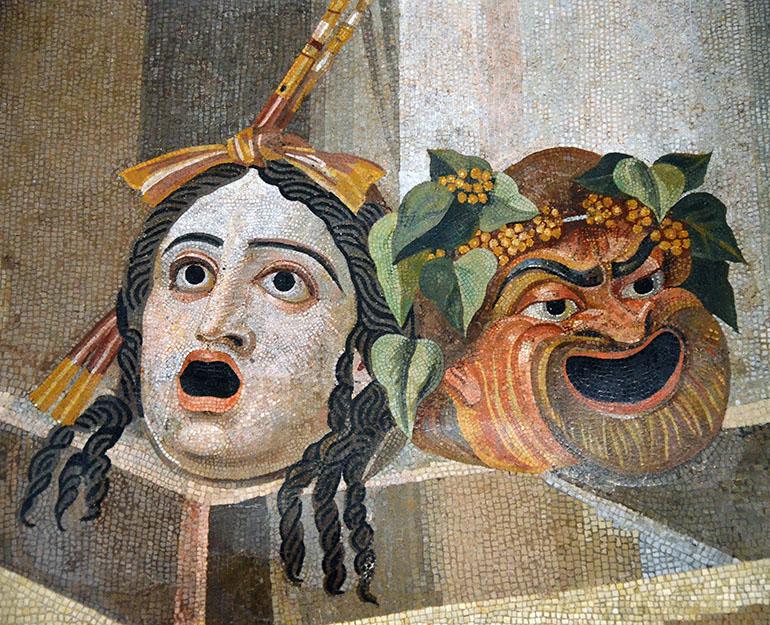Years of cabaret

Editorial by Stefano Lavorini
Era meglio morire da piccoli/ suicidarsi col cavaturaccioli/ soffocarsi con tanti batuffoli/ che vedere ‘sto schifo da grandi/… (It was better to die young/ to commit suicide with a corkscrew/ or suffocate yourself with lots of cotton balls/ than to see this crap when you grow up/…)
A stupid song*, I admit, cited, among other things, in a thousand variations by the Italian comic actor Paolo Rossi. In his book “Era meglio morire da piccoli?” (Was it better to die young?), Rossi points out that he added a question mark in the title to answer a doubt: « Is it really right that we should let "them" live while we, who are in the right, bite the dust? ». Stupid, yes… but it got me thinking.
Every time a man smiles - but much more so when he laughs - it adds something to this fragment of life.
Laurence Sterne
Mala tempora currunt… and the fact that this is not just a matter of interest for intellectuals is confirmed in the recent news, leading Maurizio Crosetti** to write: «How funny this reality is, how sad. And what little characters, what little men, what little women. Even a giant of satire like Altan confesses that he can no longer hold a candle to the news, which is much more grotesque than any fantasy».
Another comment by Altan is quite poignant: «Satire is a blunt instrument; it no longer scares anyone. And in any case, I draw to communicate a look, to share a vision of the world. It would be enough for me to have alleviated a bit of loneliness with my work».
What seems clear, at least for me, is that what is disconcerting in politics today are not the exaggerated ambitions, but ones which are too modest.
And yet, imitations and cutting comments on current events continue to be popular. There is the suspicion that, rather than for laughing, satire is good for not crying and at least for touching on the essence of the reality of things. How can we forget one of the classic lines - again by Altan - in order to understand Italians: « Who is the source of all the rubbish I say?». Or Giuseppe Pontiggia who writes: «Fanatics are not the only ones who are convinced they have all the truth (nearly everybody is), they are only the most terrified of losing it».
After all, it is collective stupidity which is the true territory of satire. We live in a world of living caricatures and, as Michele Serra said some years ago: «The more the years pass, the more I realise something that, when I was young, I hadn't taken into account. Parody is already incorporated into the Model, just as the comic is already contained in the tragic».
More recently, in the preface of the book “Ballate dei tempi che corrono” (Ballads of the current times) written with Altan, Serra says this genre is characterised by a critical attention towards various aspects of society: «Satire draws much of its inspiration from the indecent and monstrous. It avoids moralistic tirades, and simply focuses on a mechanism and deforms it enough to make it break».
Certainly, we could use a very different register to describe our present time. For example: «The honest use of memory is the most valid antidote to barbarism. This is so in every political season, in every moment of the cultural debate, in every historic period. An honest use which, as such, presupposes that we do not turn to the past in search of legitimacy for today's choices. On the contrary, if anything, it’s to identify contradictions in distant times that help us modify or record what we think now ». How can we fail to agree with these words of Paolo Mieli***?
We just need to look around us. The news leaves no room for doubt, and paraphrasing once more Altan: «Can it get any worse? ». «Unfortunately, yes».
* Paolo Rossi, “Era meglio morire da piccoli?”, Baldini & Castoldi, 1995.
** Maurizio Crosetti, “Altan: Con Sangiuliano siamo alla comica finale. Ma c’è poco da ridere”, la Repubblica 7 September 2024.
*** Paolo Mieli, “L’arma della memoria. Contro la reinvenzione del passato”, Rizzoli, 2015.

https://commons.wikimedia.org




















